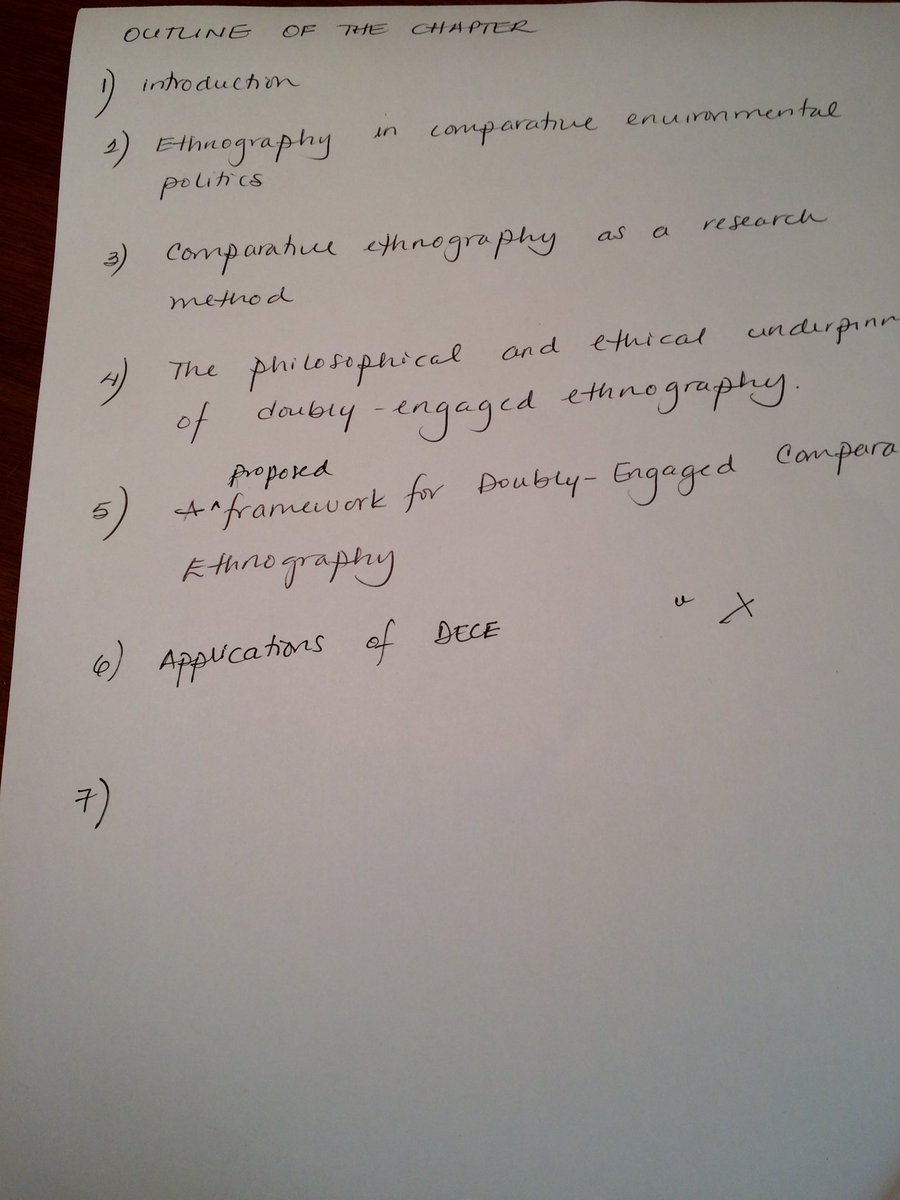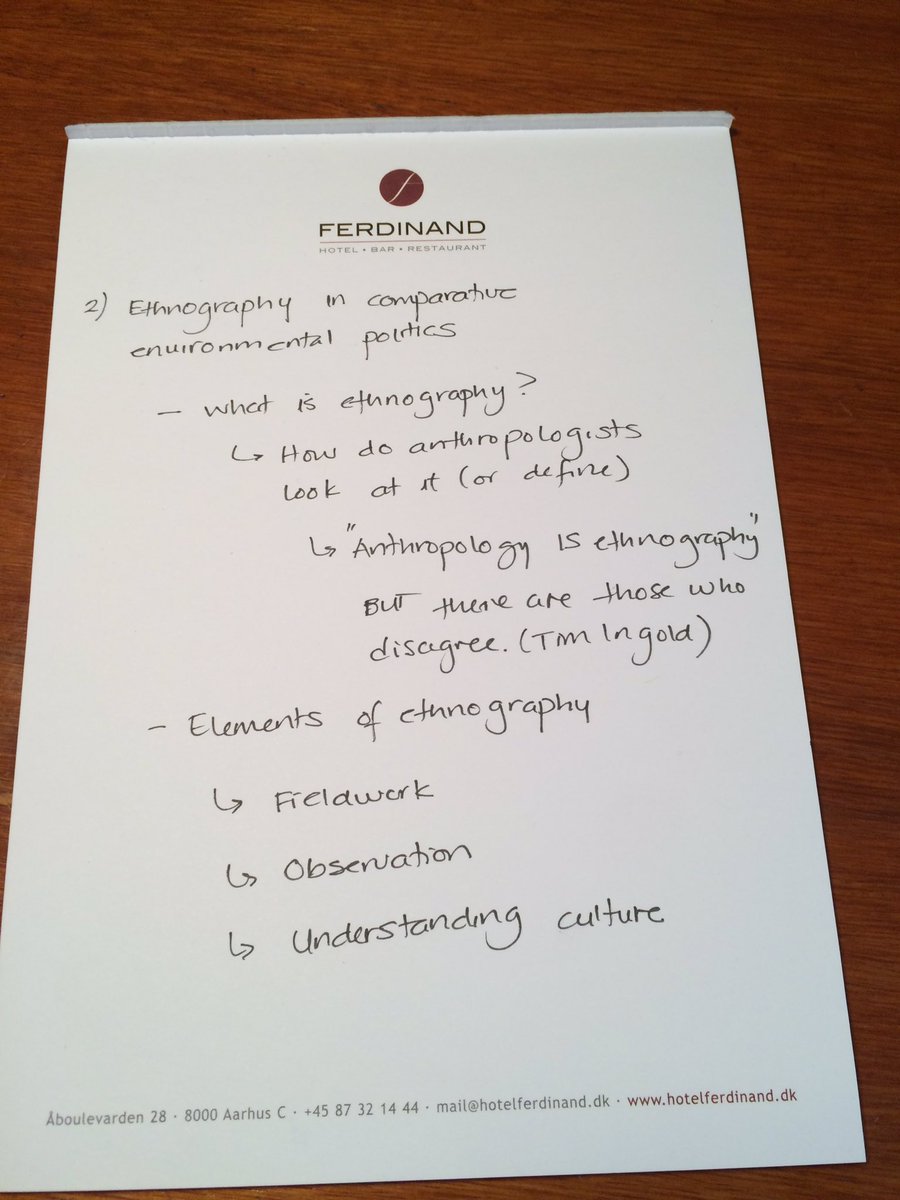
THREAD: A student (new to my methods) asked me what I did when I could not highlight.
Most people know I don’t mark my own books (nor the library’s!) but you can do with yours whatever you want.
Since I don’t mark my books, the highlighting and annotating methods I use ...
Most people know I don’t mark my own books (nor the library’s!) but you can do with yours whatever you want.
Since I don’t mark my books, the highlighting and annotating methods I use ...

... may not work in the same way.
Since I prefer analog systems and do not mark books up, here are a few ways in which I take notes that still retain some of the characteristics of my strategies for printed materials.
I’ll outline them in separate tweets.
Since I prefer analog systems and do not mark books up, here are a few ways in which I take notes that still retain some of the characteristics of my strategies for printed materials.
I’ll outline them in separate tweets.
1) THE INDEX CARD METHOD:
Since I have used them since grade school, I often take notes of books on index cards.
I usually categorize by colour of said index card, unless I run out of color-coded ones in which case I use non-coloured ones, but with a 1/2” coloured plastic tab
Since I have used them since grade school, I often take notes of books on index cards.
I usually categorize by colour of said index card, unless I run out of color-coded ones in which case I use non-coloured ones, but with a 1/2” coloured plastic tab

For example, this index card shows notes I took from @STRomanoPhD ‘s book, Transforming Rural Water Governance”.
(Those who follow my Twitter feed assiduously may remember that I also took notes of her book in my Everything Notebook, but that’s my next tweet)
(Those who follow my Twitter feed assiduously may remember that I also took notes of her book in my Everything Notebook, but that’s my next tweet)

2) THE EVERYTHING NOTEBOOK
I sometimes take handwritten notes of books (and book chapters).
These are my notes on Baden and Noonan’s edited volume (ooops).
I sometimes take handwritten notes of books (and book chapters).
These are my notes on Baden and Noonan’s edited volume (ooops).

This would be my normal setup for taking notes off a book/book chapter.
I can write notes that are direct quotations or my own thoughts or I can paraphrase.
Obviously direct quotes have quotation marks and the exact page to avoid any chance of accidental misattribution.

I can write notes that are direct quotations or my own thoughts or I can paraphrase.
Obviously direct quotes have quotation marks and the exact page to avoid any chance of accidental misattribution.


3) THE CORNELL NOTES APPROACH:
I normally don’t use Cornell Notes to take notes of classes because I’m a professor and I haven’t taken courses since I was a graduate student (I do take pedagogy and tech ones obviously)
Anyhow, with books and chapters I also use Cornell Notes
I normally don’t use Cornell Notes to take notes of classes because I’m a professor and I haven’t taken courses since I was a graduate student (I do take pedagogy and tech ones obviously)
Anyhow, with books and chapters I also use Cornell Notes

In my Note-Taking Techniques page, I have blog posts that point to each of the three methods I described before.
raulpacheco.org/resources/note…
1) INDEX CARDS: raulpacheco.org/2018/11/note-t…
2) EVERYTHING NOTEBOOK
raulpacheco.org/2018/12/note-t…
3) CORNELL NOTES
raulpacheco.org/2018/12/note-t…
raulpacheco.org/resources/note…
1) INDEX CARDS: raulpacheco.org/2018/11/note-t…
2) EVERYTHING NOTEBOOK
raulpacheco.org/2018/12/note-t…
3) CORNELL NOTES
raulpacheco.org/2018/12/note-t…
Obvious question you surely will have:
When should I write in my Everything Notebook or when should I use Cornell Notes, or when is a good time to use Index Cards?
Every single student of mine and every person who has ever attended my workshops asks me this question.
When should I write in my Everything Notebook or when should I use Cornell Notes, or when is a good time to use Index Cards?
Every single student of mine and every person who has ever attended my workshops asks me this question.
I don't have a universal answer, although I do have a few suggestions. As it always happens with techniques and methods for note-taking, active reading, annotating, writing, etc., we all develop our own heuristics for when we should use one method over the other.
Here is mine:
Here is mine:
1) If what I am reading cannot be marked up (I don't write nor highlight my books, nor any library's books), I use physical (analog) media.
You can, easily, take notes in other programs (Evernote, Notion, etc.) Personally, I find that I need the tactile sensation of handwriting
You can, easily, take notes in other programs (Evernote, Notion, etc.) Personally, I find that I need the tactile sensation of handwriting
2) I usually write summaries and quotations drawn from books and book chapters in my Everything Notebook if they're directly related to a research project I am doing at the moment, or if I am doing something VERY specific with them (for example, write a book review).
3) I frequently use Index Cards when summarizing and paraphrasing. It's rare (though it does happen) that I use Index Cards to copy quotations.
4) For direct quotations I almost always use a modified version of the Cornell Notes developed by @katrinafee researchvoodoo.files.wordpress.com/2014/04/cornel…
4) For direct quotations I almost always use a modified version of the Cornell Notes developed by @katrinafee researchvoodoo.files.wordpress.com/2014/04/cornel…
Now, let's go to another question I often get asked:
Do you take notes in your Everything Notebook, or on Index Cards or Cornell Notes of ARTICLES that you actually highlighted and scribbled on? Glad you asked. The answer is YES, I DO. Why do I do this? (apparently redundantly)
Do you take notes in your Everything Notebook, or on Index Cards or Cornell Notes of ARTICLES that you actually highlighted and scribbled on? Glad you asked. The answer is YES, I DO. Why do I do this? (apparently redundantly)
I know myself well. I know I need redundant systems and redundancies WITHIN my systems.
raulpacheco.org/2018/12/buildi…
I learn better when I write, highlight, scribble, etc.
Everything I do can obviously be translated into electronic (digital) media, but for me, handwriting is key.
raulpacheco.org/2018/12/buildi…
I learn better when I write, highlight, scribble, etc.
Everything I do can obviously be translated into electronic (digital) media, but for me, handwriting is key.
For example on the left you will see a Cornell Note of Sarah Romano’s recent book.
On the right, my Cornell Note of a recent paper by @thomasnhale

On the right, my Cornell Note of a recent paper by @thomasnhale


I also write Index Cards of articles I’ve read and highlighted. These are my notes from Schwartz et al 2015 on informal water (a paper in using for an article I am about to submit)
I know the next question you are going to ask...
I know the next question you are going to ask...

“If you already have the printed article or book chapter and you highlighted it, why not just drop your notes into an #ExcelDump row?”
First, because redundancies help me learn better.
Second, I DO create a CSED row, but I also write Index Cards from where I draw my notes.
First, because redundancies help me learn better.
Second, I DO create a CSED row, but I also write Index Cards from where I draw my notes.

My methods work for me, adaptations of my methods work for my students and research assistants and colleagues and also for thousands of people around the globe, but the only person who can really tell if a technique I suggest will work for you is YOU.
NEW BLOG POST: Analog note-taking when highlighting is not possible (e.g. books) raulpacheco.org/2020/11/analog…
This thread in handy blog post form.
This thread in handy blog post form.
• • •
Missing some Tweet in this thread? You can try to
force a refresh




